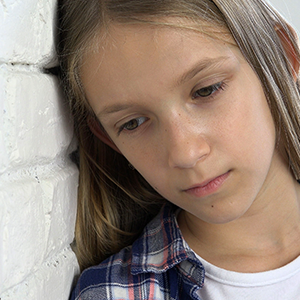With ER visits by children who attempted or considered suicide doubling,
parents should know what signals depression, anxiety and other disorders
and how to respond.
Kids have many behaviors that make them unique. But what’s quirky, what’s
idiosyncratic and what’s a red flag for more serious concern? It’s
important for parents to know the difference, especially in light of news
last month that the number of teens and children who went to the ER after a
suicide attempt or with suicidal thoughts doubled between 2007 and 2015 to
more than one million.
The fact is that one in five children in this country has a mental-health
issue, says Jaime Arlia, Associate Vice President, Children and Family
Services at Care Plus in Paramus, N.J. Since half of those children show
symptoms by the time they turn 14, parental vigilance is important.
“I encourage parents to be very watchful,” says Sage Windemaker, a child
and adolescent therapist in Kennett Square, Pa. Look for patterns of
behavior, she suggests, such as a cluster or recurrence of symptoms.
Kim Rehak, EdD, a mental-behavioral health care specialist and co-founder
of the International Institute for Behavioral Development in Red Hill, Pa.,
recommends children “get a checkup from the neck up,” the same way they get
a wellness check with a pediatrician.
Watch for sudden changes in personality
Anxiety is the most common behavioral-health issue for kids of all ages,
says Tomaro Pilgrim, a counselor in Claymont, Del. A recent Pew study found
that about 32 percent of those with mental-health issues experience
anxiety.
With anxiety, younger children may experience physical symptoms, such as
headaches or stomachaches. Be alert if your child develops a new fear of
something to the point where it prevents him from participation in school,
sports or friendships. Watch for difficulty with concentration that leads
to changes in schoolwork or behavior. Although this may affect grades, it
might happen more slowly, says Windemaker.
Be alert to changes in personality that occur quickly, such as a
happy-go-lucky kid who is suddenly disinterested. “You know your kid. You
know when you see things change,” says Pilgrim. “There should be a concern
when something just switches off. Usually changes in personality happen
more gradually.”
Mood swing or depression?
Mood swings are typical for teens, but, as a parent, you know your child’s
normal range of emotions. “Deviations from that are potential warning
signs,” says Howard Savin, clinical psychologist at First Children Services
in Cherry Hill, N.J. Look for changes in what he eats or changes in sleep
patterns, such as insomnia or excessive sleep, he says.
Take notice when things no longer give her pleasure, like friends or
activities. “This is a very important warning sign for parents to
identify,” says Savin. Substance abuse is another signal for depression.
“Drug and alcohol use and depression go hand in hand,” says Savin.
Picky eater vs. eating disorder
Eating disorders are not as common, but picky eaters can cause their
parents to worry. Some kids can have seemingly restrictive diets of mac
& cheese or chicken nuggets and still be perfectly healthy, says Savin.
“The real bottom line is weight loss” or malnutrition, he says.
Therapy vs. drugs
Treatment is available, but there can be red tape and waiting lists. “One
of the challenges for people to get help is that they have to wait for it,”
says Arlia. There are not enough child psychiatrists and, as a result,
there are wait lists as long as three months.
Cognitive behavioral therapy, which retrains the thought pattern of the
patient, has proven successful and, often, quicker than medication, says
Savin. It doesn’t have to take years and years of therapy to help your
child; good results can occur in 10 or 15 weeks, he says. Medications can
help with anxiety, although it’s not the long-term solution, he notes.
Be ready for resistance
When you bring up your concerns with your child, be prepared to not get a
straight answer, advises Pilgrim. “But you have to insist on getting the
situation checked out,” even if you are the type of parent who believes
your child is owed some privacy by their teen years.
“There is an important degree of intrusiveness that parents need to have to
make sure their child is okay,” says Savin.
A visit with a behavior analyst might also assure a measured response,
Rehak says. “Especially during a time of hypo- vs. hyper-vigilance, typical
teen behavior may trigger an overreaction from parents or school officials,
at times,” she says. “Interventions, when not linked to functional
assessment, and/or a careful behavior analysis, could cause unnecessary
trauma or exacerbate low self-esteem for children.”

